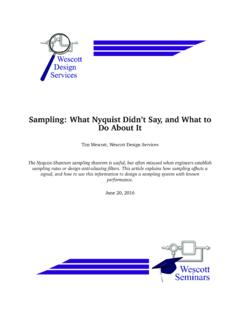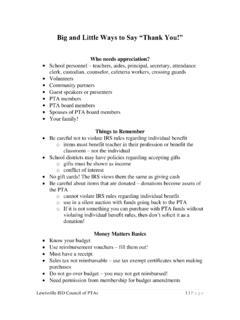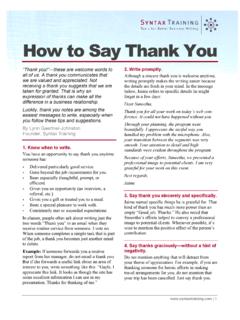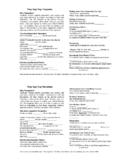Transcription of WRITING AMENDS LETTERS TO THE PEOPLE YOU …
1 WRITING AMENDS LETTERS TO THE PEOPLE YOU HAVE HURT with your controlling , disrespectful , AND abusive BEHAVIOR A critical part of the recovery process around issues related to anger, disrespect, control, and abuse (for both you the abusive person and for others you have hurt, especially if you are trying to reconcile with a partner) is to write LETTERS to the victims of your controlling and disrespectful behavior. This can include your current or most recent partner and you can also write LETTERS to your children or others, if you wish. The purpose of this letter is to clearly and specifically identify some of your disrespectful and intimidating actions; your emotional, verbal, and physical abuse; your other controlling attitudes and behaviors; and anything else you have done in the relationship that you do not feel good about as you read through and think about what you read in this website.
2 This letter also involves directly recognizing the pain you have caused in the other person s life by what you said and did. It is an opportunity to clearly acknowledge that what you did was wrong and that this is not who you wish to be in the future. For the purposes of this letter, it is primarily a commitment to yourself about how you want to live from this point forward. Some PEOPLE offer global statements such as I m really sorry for everything bad I ve done to you or I m sorry you feel so bad about what happened in the past and expect this to suffice when it comes to making AMENDS .
3 This sort of statement, however, shows little or no insight and understanding about what you have actually done with the other person. Nor does it address the very real and hurtful emotional impact you have had on them. This kind of statement more often serves as a way to really say, in a very blaming fashion, I m tired of hearing about this stuff over and over. Why don t you stop talking about the past and just move on? with the underlying message being blaming and hurtful itself, You re the one with the problem. What s the matter with you? In fact, it can be very helpful and healing for a victim of controlling , hurtful, and abusive behavior to hear clearly and specifically what you have said or done that you truly feel badly about and to hear that you understand how you have affected them with your behavior.
4 This letter allows you to take full responsibility for what you have done and to make clear AMENDS and apologies to the victims of your disrespectful , controlling , and abusive attitudes and behaviors for what has previously been an significant part of how you have related to them. This letter enables you to think and write about the ways you have emotionally impacted your partner, your children (if you have any), and others in your life who have been hurt, shamed, punished, demeaned, and damaged by your controlling and disrespectful attitudes and behaviors and the letter offers you the chance to think and write about how you feel about having done the things that you have done.
5 In addition, it is also recommended that you talk about some of the specific things you have learned through your reading (on the website or from other resources) or participating in a class or counseling that have helped you understand more about the pain you have created in others and about how you can actually intervene effectively in your controlling and disrespectful attitudes and behaviors in the future. Finally, the letter allows you to make a a concrete and realistic commitment to being respectful in the future and gives you the opportunity to talk specifically about how you will make that commitment come to pass (which is significantly different from hollow promises to change that you may have made in the past with the PEOPLE around you).
6 1 2000 David J. Decker, MA, LP: 612-725-8402; 651-646-4325; This is also NOT intended to be a letter where you should ask for or expect anything in return from your partner or others to whom you are WRITING . Stay aware of subtle controlling messages such as asking your partner or others to forgive you, thanking them for still being with you, or communicating the hope they will reconcile with you, give your another chance, or continue to love you. These kinds of expressions have the potential to communicate to them in an overt or covert way that they owe you something for all the work you have done on yourself in this process of learning more about yourself, which in itself can become controlling ( I ve done all this for you have to do something for me ).
7 This is not the goal of the AMENDS letter. As noted above, however, the major purpose of this letter- WRITING is to clearly and specifically recognize and make AMENDS for the hurt and pain you have caused PEOPLE whom you have claimed to care about in the past. In this way, it can be a positive and powerful step in reducing the shame you have felt about your controlling and disrespectful behavior and in forgiving yourself for the significant mistakes that you have made in the past by your being controlling and disrespectful with the important PEOPLE in your life. A critical part of truly forgiving yourself is making a clear commitment to work a recovery program from this point forward which will help you avoid repeating the same mistakes you have made in the past ( with your current partner or anyone else).
8 This letter does not need to be sent or even communicated directly to the victim(s) of your controlling and abusive behavior if you do not wish to do so. However, actually sharing it can be a helpful step in re-building trust and safety in your relationship if both of you wish to reconcile and truly heal the relationship that has been so violated and damaged through your use of control and disrespect. Sharing this letter with a partner can actually be a useful way to clearly acknowledge what you have done, to recognize how it has affected your partner, to communicate your understanding of why you have done what you have done (this is not to be used as an excuse for what you have done, but if you don t really understand why you have done what you have done, you are much more likely to repeat your controlling and disrespectful actions in the future)
9 , and to make a clear commitment to work hard at an ongoing recovery program so you will not repeat the destructive behaviors you have demonstrated in the past. It does not make any sense to share this letter with a partner or anyone else, however, if you do not plan to continue to actively work the recovery program you have started by doing this anger management work in the first place. That would make this letter simply another hollow promise that you probably have made in the past which you failed to follow though with . The true path to healing, growth, and reconciliation (if your partner is or others are willing to do this with you) involves a consistent pattern of attitude and behavior change over time which clearly demonstrates that you understand what has happened and are willing to continue to work hard to change this part of you to help create a safe, trusting, and loving relationship with your partner and the other important PEOPLE in your life.
10 When you are ready, you are encouraged to write this AMENDS letter to the primary victim of your disrespectful anger and abusive or punishing behavior and present it in class or to your therapist and then get feedback from other class members or from your counselor about what you have written. You are also encouraged to write and read LETTERS to other PEOPLE you may have victimized ( your children, past partners, even acquaintances or strangers whom you have hurt in the past) if you wish to do so. Some examples of AMENDS LETTERS men have written to their partners and children are 2000 David J.




